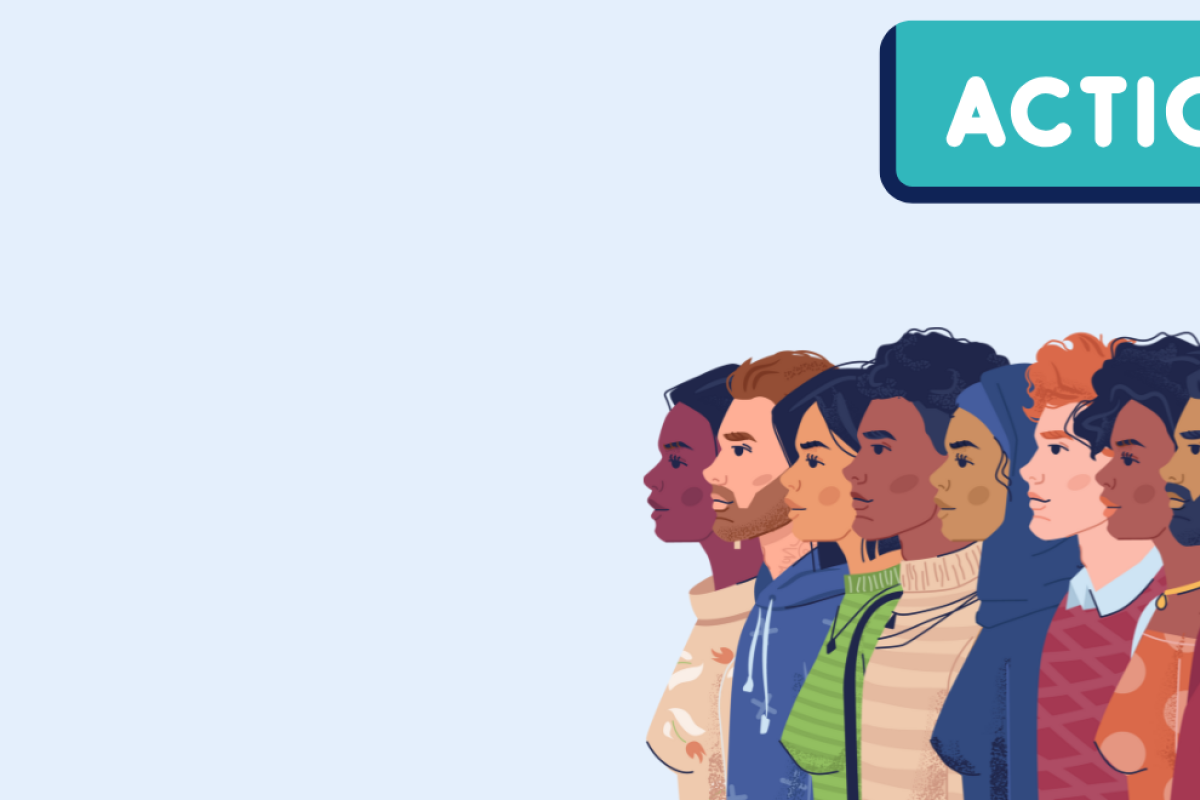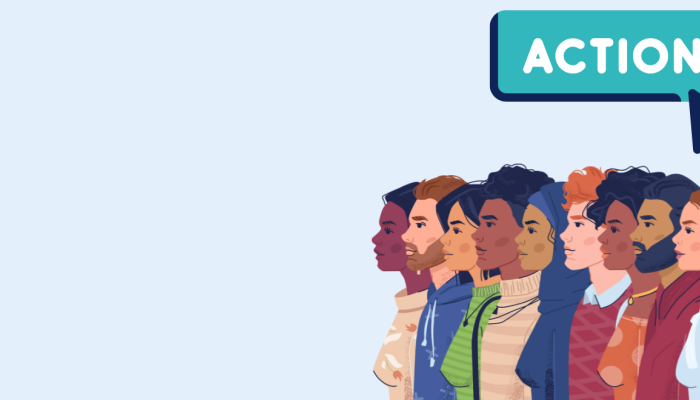Accelerate Action: International Women's Day 2025
Accelerating action means pushing beyond promises to tangible change. It’s about dismantling systemic barriers, challenging ingrained biases, and creating a world where opportunity is not dictated by gender. It requires swift, decisive, and collective action from individuals, organisations, and industries.
We asked our Members and industry leaders to share their vision of a world free from bias, stereotypes, and discrimination and the vital role marketing plays in bringing that vision to life. Through their insights, we hope to spark conversations and inspire actions that help speed up the pace of progress.
Here's what our Members had to say...

A world free of bias, biases, and discrimination is one in which opportunities are based on merit rather than assumptions. It is a world in which people are respected for their ideas and contributions, not their gender, background, or any other designation. In this world, diversity is not just encouraged; it is the norm, and everyone has the opportunity to thrive.
Getting there is about far more than just making bold statements or implementing one-time projects. It is about taking constant action—creating circumstances in which different points of view are not just accepted but actually impact decision-making. It's about addressing stereotypes, being proactive about representation, and making sure that equal opportunity isn't simply a business phrase but something we truly integrate into our workplaces, policies, and interactions.
The Importance of Marketing in Driving Change
Marketing has a significant impact on the narratives that individuals encounter on a daily basis. It determines how we view leadership, success, and even what is possible. Every campaign, ad, and piece of material either confirms or challenges existing prejudices.
That's why branding must be intentional. Representation is more than just checking a box; it is about telling real, diverse stories that people can relate to. When marketing accurately reflects the world, it can help transform perceptions and open the way to greater inclusiveness in business and society.
Aside from that, marketing has the ability to motivate action. What we put into the world counts, whether it's pushing for equitable opportunities, promoting women in leadership, or inspiring debates that push sectors forward. It's not just about visibility; it's about making a meaningful difference.
We all have a role to play in making this vision a reality, and marketing is one of the most effective ways to accelerate success.
- Dalia Mansour, Head of Field Marketing ANZ, ASEAN, MEA, Sprinklr

A world free of bias, stereotypes, and discrimination is one of equal opportunity, representation, and voice. It’s a world where inclusion isn’t a checkbox but an intrinsic part of how we live, work, and communicate. I am very optimistic for the future as change has started to happen. Marketing plays a crucial role in this – I focus my research on Gen-Alpha, and for this young cohort, this vision isn’t aspirational—it’s their reality. They expect equality as a given, not a goal.
For Gen Alpha, equality isn’t just an expectation—it’s a demand. According to McCrindle Research, 81% of Gen Alpha believe diversity and inclusion should be standard in all forms of media and advertising. They don’t just want to see diversity; they want brands to take action.
Why the role of marketing is so vital; Marketing+ Communications have long played a role in shaping societal norms, for better or worse. Historically, advertising reinforced rigid gender roles—think of the 1950s housewife trope, where women were confined to domestic duties while men led in business and leadership. Fast-forward to today, and brands that champion diversity and inclusion are outperforming their peers. A 2021 study by Deloitte found that 57% of consumers are more loyal to brands committed to addressing social inequalities.
Let’s Remember How Brands Have Driven Change
Several brands have recognised the power of marketing in shifting perspectives:
- Always’ #LikeAGirl (2014): This campaign redefined the phrase “like a girl,” turning it from an insult into a message of empowerment. The video amassed over 90 million views globally and sparked a cultural shift in how young girls perceive their abilities.
- Nike’s “You Can’t Stop Us” (2020): This campaign celebrated diversity in sport, highlighting athletes of all races, genders, and abilities. It became one of the most shared ads of the year, with 50 million views in just a few days.
- Dove’s Real Beauty Campaign (2004–Present): Dove’s groundbreaking campaign challenged unrealistic beauty standards, using real women instead of models. As a result, the brand saw a 700% increase in sales over a decade.
As marketers, we have a responsibility to reflect and reinforce this mindset in everything we create. Every campaign, every message, and every piece of content should contribute to a more inclusive world. Representation shouldn’t be an afterthought; it should be woven into the very fabric of our storytelling.
This International Women’s Day, we should commit to making inclusivity second nature in every project we take on. Not because it’s expected but because it’s the right thing to do—and because the next generation won’t accept anything less.
- Pia De Malherbe, Chief Brand Officer, 10 Days London

For me, a world free of bias, stereotypes, and discrimination isn’t an abstract idea—it’s personal. Growing up in Bangladesh, I saw powerful women lead the country for over 30 years—prime ministers and speakers of parliament. But the most profound influence came from home. In my family, equality wasn’t an ideal—it was the norm. My parents made every decision together, side by side. When my mother found her moment to soar higher, my father didn’t hesitate—he packed his bags and followed her lead. With two strong sisters beside me, gender wasn’t a point of difference—it was just life.
That’s the world I believe in. A world where diversity isn’t a box to tick—it’s the foundation of how we think, lead, and live. A world where opportunity doesn’t ask your gender, your race, or your background before it lets you through the door.
But belief alone won’t build that world—action will. And it must happen on two fronts.
1. Build Capability from the Ground Up—Light the Fire at the Bottom
Yes, the balance of ratio at the top matters, but I am afraid most actions are focused there. The action needs to happen in both the top and bottom of the funnel, or else we leave it to hope and destiny that some of the top will inspire others sufficiently to break the bias. We need more than mentorship—we need psychological fostering. Imagine if every senior leader stood shoulder-to-shoulder with five underrepresented talents—guiding, lifting, championing them until they knew, deep in their bones: “I deserve this seat. I earned it.”
I’m not just speaking it—I’m living it. I founded Kriya, a pro bono mentoring program for young executives across Asia, Africa, and Latin America. Five future leaders under my wing. Five flames I refuse to let die out before they burn bright enough to break ceilings—and rewrite destinies.
2. Foster Radical Openness at the Top—Unleash Voices
Diversity lets people in the room. Openness ensures their voices shake the walls. Leaders must build spaces where every voice matters—where the loudest idea isn’t the best one, and the boldest challenge isn’t shut down but welcomed. Here’s some provocation to rewire our way of work and build openness in thinking:
- Get Unconventional Advisors – Why only take inspiration from industry insiders? Some of the best creative minds operate outside of business. Imagine bringing in will.i.am to advise on digital consumer engagement or getting Rory Sutherland to completely dismantle your brand positioning (because he will).
- Reverse-Engineer Obsession – Work in consumer goods? Spend a day at Dover Street Market with streetwear collectors to understand why people queue overnight for a drop. Building a loyalty program? Study football fandoms or K-pop communities because their retention strategies put most CRM programs to shame.
- Meetings in Unlikely Places – Instead of boardrooms, try holding a Brand Team meeting on the sweeping staircase of the British Museum, surrounded by centuries of human ingenuity. Or in the kitchen of a local fishmonger (via Withlocals) to immerse in real-world perspectives. Because true insight doesn’t come from PowerPoint—it comes from unexpected encounters.
- Steal From Culture, Not Just Competitors – If you’re shaping a campaign, hire a historian, a documentary filmmaker, or a TikTok anthropologist to decode consumer behavior. Want to understand long-term brand building? Have your team study how religious institutions, underground music scenes, or cult fashion labels sustain loyalty for decades.
These are just a few provocations. And there could be many more. The key is to think differently rather than sticking to the mould of the comfort zone.
Why Must Marketing Lead This Fight? Because We Don’t Just Reflect Culture—We Shape It. Every campaign we craft can either reinforce tired stereotypes—or tear them down. We have a choice: play it safe or dare to redefine the narrative.
- Challenge Stereotypes in Storytelling – Represent voices that matter, not as tokens but as truths. Dove’s “Real Beauty” didn’t just sell soap—it shattered beauty standards worldwide.
- Champion True Representation – Reflect every shade, every story, every voice. LEGO’s “Everyone Is Awesome” wasn’t just a toy set—it was a bold, joyful celebration of LGBTQ+ pride.
- Drive Cultural Earthquakes – Take a stand that shakes the status quo. Nike’s partnership with Colin Kaepernick wasn’t a campaign—it was a movement that dared the world to choose justice over comfort.
It’s time to stop whispering about change. This isn’t a “someday” vision. It demands bold action—lifting voices from the ground up and smashing open doors at the very top. We are not here to hope for change. We are here to build it.
- Tanvir Siddiqui, Former Global Head of Brand, British American Tobacco Plc

Bias, stereotypes, and discrimination show up in hiring practices, pay gaps, and leadership models designed to favor the same few faces. Left unchecked, it keeps power in the hands of those it was built to serve.
But a world free of these doesn’t mean erasing differences; it means acknowledging them, challenging the power structures that keep too many people on the outside, and making sure those differences don’t limit opportunity.
It starts with shifting who holds power and who gets a seat at the table—not in theory but in practice. That means fewer excuses, fewer empty promises, and fewer panels talking about the problem. I want to see fewer “we’re working on it” statements and more women making the actual calls. Less hand-wringing and more shifts in who holds influence and who gets heard.
It’s on all of us to stop waiting for the system to fix itself and start designing better ones. That means recognizing the power we do have and using it to open doors for others. It means backing words with budgets, rethinking what leadership looks like, and making sure opportunities reach those who’ve historically been shut out.
This isn’t a pipeline problem. Women are already here. Already delivering. Sometimes in four-inch heels with a baby in tow. The real question is: Who’s making room for us? And who’s still making excuses?
"Behind every successful man is a woman… who put him in power. Now, let’s put her in charge."
Why does marketing play a crucial role in this journey?
Marketing shapes perception. It decides who gets seen, how stories are told, and what ideas get reinforced or dismantled. If the same faces keep showing up in leadership ads, if ads reinforce outdated gender roles, and if success keeps being packaged in one narrow way, those patterns become ingrained beliefs. Marketing has the power to break that cycle—to normalize diversity, shift perceptions, and push industries to rethink who they serve and how.
But it isn’t just about representation; it’s about shifting who gets to shape the message in the first place. That means questioning who’s making creative decisions and making sure marketing doesn’t just mirror culture but moves it forward.
The industry has influence, and it can either uphold the status quo or actively create space for new voices and perspectives.
- Nathalie D Ramirez, Co-Founder & Managing Partner, SAYA

Why does marketing play a crucial role in this journey?
In marketing, we often believe our job is solely to amplify our message—talking or even shouting at prospective customers. However, when it comes to inclusion, the more crucial aspect is listening.
Everyone has a unique journey filled with distinct experiences and perspectives, making us all unique. As marketers, we can get caught up in segmentation and client personas, attempting to fit everyone into a box. By prioritising listening and empathy, we can create more inclusive marketing strategies that reflect the diversity of the people we aim to serve.
So, how do we achieve this?
- No more echo chambers: Our teams should reflect the marketplace, offering challenges and new perspectives.
- Break down stereotypes: Marketing should portray people as multifaceted individuals rather than reducing them to a single narrative.
- Build authentic customer relationships: Focus on personalized and genuine messaging.
Lastly, and perhaps most importantly, we must consider our role as leaders. We need to create a sense of psychological safety, allowing the whole team to express their views. By fostering environments that encourage free thought and focus on results rather than time spent at a desk, we can help everyone become the best version of themselves.
- Zoe Pearson – Head of Marketing Asia and Middle East, St. James’s Place

As broad as this question is, it is still an important one. I believe that achieving a world entirely free of bias, stereotypes, and discrimination may not be possible in our lifetime. This perspective is not intended to be negative or hopeless; rather, it highlights the urgent need to confront and address these critical issues with determination and proactivity. While it is human nature to hold biases and rely on stereotypes, the real challenge arises when we act on these subconscious tendencies to create an unequal environment.
Globally, while some nations and societies are collaborating to tackle these issues transparently, others are taking regressive steps that exacerbate the problems. It can often feel like progress is made, only to be countered by setbacks. On International Women’s Day, the starkness of these challenges becomes even more apparent, reminding us of the considerable work still needed to achieve true gender equality, inclusivity, freedom of expression, and financial independence for those marginalized due to gender, age, race, nationality, or physical ability.
Amid the ongoing conversation, to create meaningful change, I believe we must break down the complexity of the challenges, understand the nuances involved, and address them with tangible, solution-oriented approaches. And this is where it can play a transformative role, guiding brands to connect authentically with their target audiences. Marketing possesses the power to shape public perception. It’s noteworthy that this industry is home to many exceptional female leaders who continue to drive impactful campaigns that inspire others to embrace empathy for their teams and clients alike.
Essentially, the perfect formula doesn’t exist, but on the occasion of IWD this year, on this International Women's Day, let’s commit to advocating for brands to communicate their messages with genuine intent, ultimately shaping perspectives in a positive direction. It’s essential for brands to attune themselves to the intelligence and priorities of today’s consumers, focusing on inclusive representation, encouraging action, and staying true to their values in their campaigns. By doing so, I am hopeful we can collectively foster a more equitable society, one campaign at a time.
- Anusuya Mitra, Regional Director - Corporate Communications, Sinclair

A world free of bias, stereotypes, and discrimination is one where women are seen, heard, and valued for who they truly are and not for who society expects them to be. It’s a world where opportunities aren’t shaped by gender but by ambition, talent, and passion.
As someone who works in marketing and storytelling every day, I see just how much the narratives we create influence the way people think. Representation matters not just in the workplace but in the content we consume, the brands we engage with, and the conversations we have. When we show women in leadership, in tech, in business, in spaces where they’ve historically been underrepresented, we help normalize what should have always been the norm. Every influencer partnership and every piece of content we put out has the power to shape perceptions. By showing a variety of real voices and perspectives, we break old stereotypes and show that women are not just supporting characters but leaders, creators, and decision-makers.
But breaking bias isn’t just about work. As a mom of two boys, I think a lot about the world they’re growing up in. I want them to see strength, kindness, and ambition as qualities that belong to everyone, not something defined by gender. I want them to respect and uplift the women around them, not because they were told to but because it’s simply the way things should be.
A bias-free world won’t happen overnight, but every conversation, every piece of content, and every action counts. If we all commit to telling better, more inclusive stories, whether through marketing, leadership, or everyday life, we can create real change.
- Sabine Khoury, Head of Business Unit, Influence, Sila Influence, part of Sila

Imagine a world where opportunities are based solely on talent, ambition, and effort—where individuals are seen for their potential rather than their gender, race, or background. In this world, workplaces reflect the diversity of society, leadership roles are filled by the best minds regardless of identity, and organizations foster cultures of inclusion rather than exclusivity. Success is measured not only by profit but also by impact, and companies thrive because they embrace a multitude of perspectives that drive innovation and progress.
This vision can only become a reality through collective action. Here are five actionable steps to collectively make the vision of a world free of bias, stereotypes, and discrimination a reality:
- Commit to Purpose-Driven Leadership
Organizations and individuals must lead with intention, embedding inclusivity into decision-making, policies, and everyday actions. Leadership should reflect the diversity they aim to create, ensuring representation at every level. - Challenge and Redefine Narratives
Media, marketing, and corporate storytelling must move beyond traditional stereotypes, showcasing diverse success stories and role models. Purpose-driven branding, like Bayer’s collaboration with GVGL, can drive meaningful change by shaping new norms. - Build Inclusive Cultures and Systems
Companies must create environments where all employees feel valued and supported, implementing fair hiring, equal pay, mentorship, and leadership programs that break systemic barriers. Actions should go beyond policies to tangible cultural shifts. - Empower Voices and Drive Representation
Providing platforms for underrepresented voices to be heard—through storytelling, public speaking, or leadership visibility—ensures that diverse perspectives influence industries, policies, and communities. - Sustain Momentum with Measurable Actions
Change requires consistency. Organizations should set clear goals for inclusion, track progress, and adapt strategies to ensure long-term impact. Individuals should continue advocating for change in daily interactions and professional spaces.
Why Does Marketing Play a Crucial Role in This Journey?
Marketing is not just about selling products; it is about connecting with your purpose and bringing those promises to life. At GVGL, we embody this by transforming brand commitments into meaningful experiences that drive impact.
Bayer, powered by GVGL Marketing, demonstrated this by integrating inclusion into its employer brand, proving that diversity-focused initiatives can drive both social change and business growth. Under the leadership of Middle East HR Head Özden Yigit, Bayer’s Egypt team partnered with GVGL to design and execute a campaign that celebrated women leaders and their inspiring journeys. The initiative focused on recent female hires in Egypt, connecting their roles at Bayer to the childhood dreams they are now realizing within the company.
Through personal branding workshops and coaching sessions, GVGL empowered Bayer’s women leaders to confidently share their stories, reinforcing their presence as visionary leaders within the organization and beyond. With compelling storytelling, this case became a global success story and endorsed by Bayer global. It is also a case where changing the narrative redefined the corporate culture and transformed the bias against women leading in the Middle East culture. Creativity and storytelling played a key role in redefining stereotypes.
Leading with Purpose and Creating a More Inclusive World
Marketing is about connecting with your purpose and bringing those promises to life. At GVGL, we embody this by transforming brand commitments into meaningful and inclusive experiences that drive impact. Companies that embrace inspirational storytelling create deeper connections, shaping a future where everyone has the opportunity to lead, thrive, and make a difference.
- Ebru Tuygun, CEO of GVGL Marketing & IWBD Advisory Board Chairwoman
Want to read more? Read part 2

